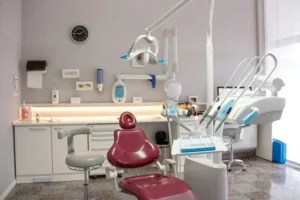Managing Medication in Canadian Medical Bags: Best Practices and Safety Guidelines
- Updated on: Feb 16, 2024
- 3 min Read
- Published on Feb 16, 2024

In the realm of healthcare, preparedness is paramount. Whether it’s responding to emergencies or providing routine care, having the right tools and resources readily available can make all the difference. One crucial aspect of healthcare preparedness is the organization and management of medical supplies, particularly medications. In Canada, the importance of efficient medical kit management cannot be overstated, and this is where Angus Medical manufacturers step in, with Sands CA leading the charge in producing quality medical bags. In this blog, we’ll delve into the significance of medical equipment bags and explore best practices and safety guidelines for managing medical kits in Canada.

Understanding Angus Bag Manufacturer: Sands CA
Angus Medical, a renowned name in the healthcare industry, plays a vital role in providing top-notch medical equipment and supplies. Among its offerings, medical bags stand out as indispensable tools for healthcare professionals, enabling them to carry essential supplies conveniently and securely. Sands CA, a prominent Angus bag manufacturer based in Canada, takes pride in producing high-quality medical bags tailored to meet the unique needs of healthcare providers across the country.
Sands CA understands the critical role that medical bags play in ensuring the prompt and effective delivery of healthcare services. Their commitment to quality craftsmanship and innovation has earned them a reputation for excellence in the industry. With a focus on durability, functionality, and user-friendliness, Sands CA’s Angus bags are trusted by healthcare professionals nationwide.
Importance of Efficient Medical Kit Management
Effective management of medical kits is essential for maintaining patient safety, optimizing workflow efficiency, and ensuring regulatory compliance. In the fast-paced environment of healthcare settings, having well-organized and properly stocked medical bags can streamline processes and enhance the overall quality of care.
In Canada, where healthcare standards are stringent, healthcare providers must adhere to strict guidelines regarding the handling and storage of medications. Failure to comply with these regulations can have serious consequences, including compromised patient safety and legal repercussions.
Best Practices for Managing Medical Kits
Inventory Management: Regularly audit and update the contents of medical kits to ensure that they are adequately stocked and within their expiration dates. Utilize inventory management systems to track usage and facilitate timely restocking.
Proper Labeling
Clearly label all medications and supplies within the medical kit, including their generic and brand names, dosage strengths, and expiration dates. This helps prevent medication errors and ensures accurate administration.
Temperature Control
Maintain proper temperature control measures to prevent medications from exposure to extreme heat or cold, which can compromise their efficacy. Invest in insulated medical bags or cooling packs when transporting temperature-sensitive medications.
Secure Storage
Store medical kits in secure and easily accessible locations, away from unauthorized personnel and environmental hazards. Consider using lockable cabinets or tamper-evident seals to prevent unauthorized access to medications.
Regular Inspections
Conduct routine inspections of medical bags to check for signs of damage, tampering, or expired medications. Promptly replace any compromised or expired items to maintain the integrity of the kit.
Training and Education
Provide comprehensive training to healthcare personnel on the proper use and maintenance of medical kits. Ensure that staff members are familiar with emergency protocols and know how to respond effectively in crisis situations.
Safety Guidelines for Medication Management
Adherence to Regulations
Familiarize yourself with relevant regulations and guidelines governing the handling, storage, and administration of medications in Canada. Ensure compliance with federal and provincial laws, as well as industry standards and best practices.
Documentation and Record-Keeping
Maintain detailed records of medication inventory, usage, and administration. Document any discrepancies, incidents, or adverse reactions promptly and accurately.
Medication Security
Implement robust security measures to prevent unauthorized access to medications, including restricted access to medical storage areas and the use of surveillance cameras or alarm systems.
Emergency Preparedness
Develop comprehensive emergency preparedness plans that outline procedures for managing medication-related emergencies, such as medication shortages, overdoses, or adverse reactions. Ensure that all staff members are trained in emergency response protocols.
Collaboration and Communication
Foster open communication and collaboration among healthcare team members to facilitate the safe and effective management of medications. Encourage reporting of any concerns or incidents related to medication safety.
Conclusion
In conclusion, the management of medical kits in Canada, particularly medication, is a critical aspect of healthcare delivery in Canada. Angus Medical manufacturers, such as Sands CA, play a crucial role in providing healthcare professionals with high-quality medical bags designed to meet their specific needs. By adhering to best practices and safety guidelines for medication management, healthcare providers can ensure the safety, efficiency, and effectiveness of patient care. With a commitment to excellence and continuous improvement, Canadian healthcare professionals can uphold the highest standards of medication management and deliver optimal outcomes for their patients.












